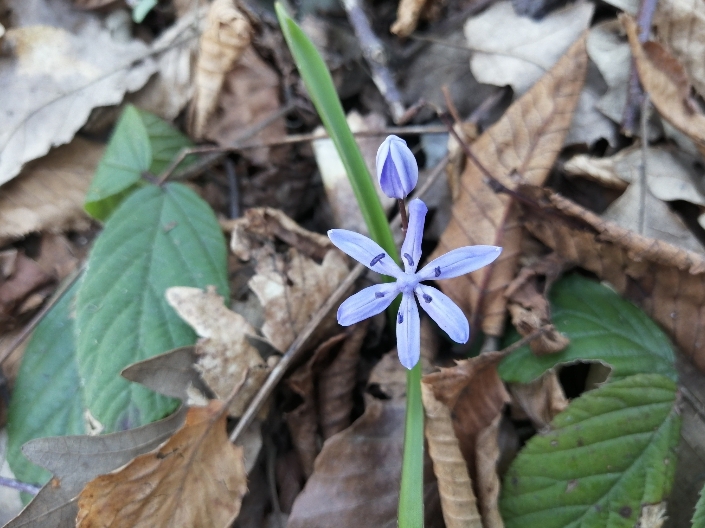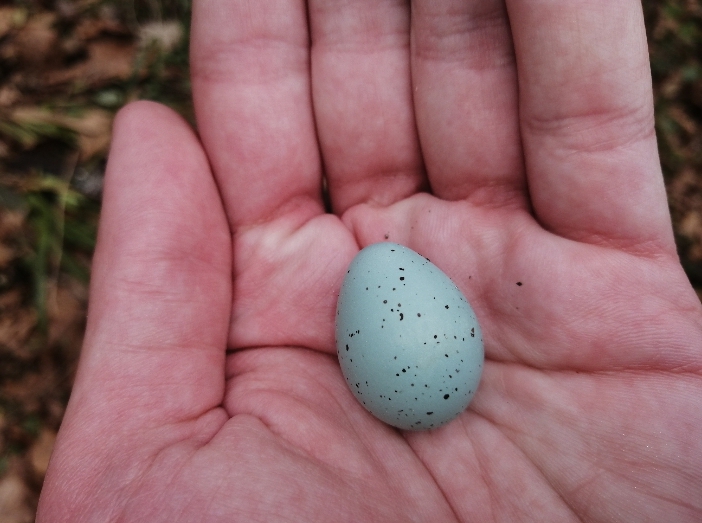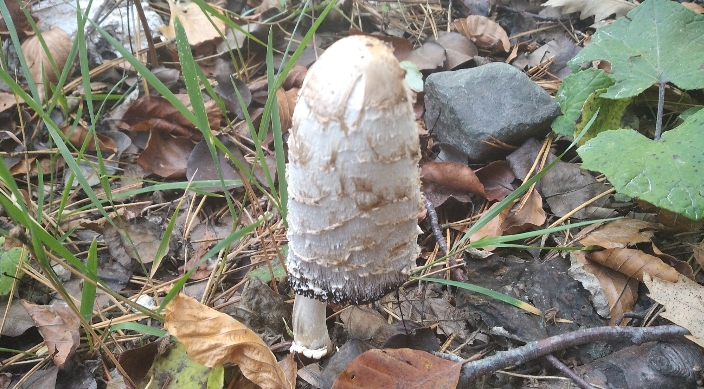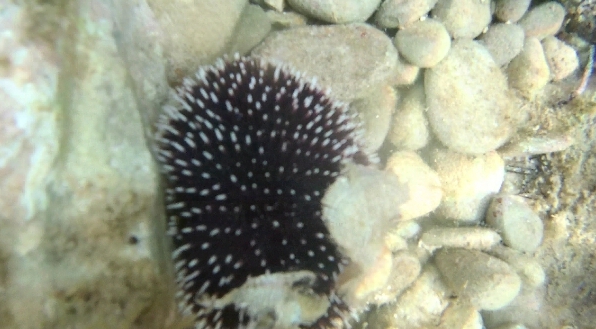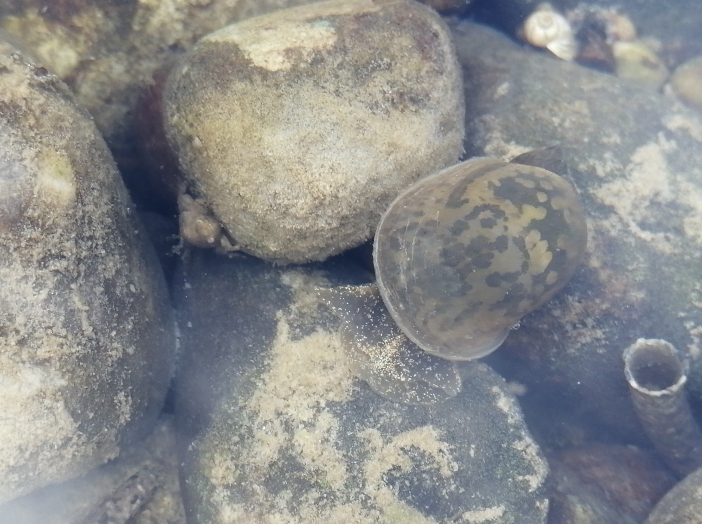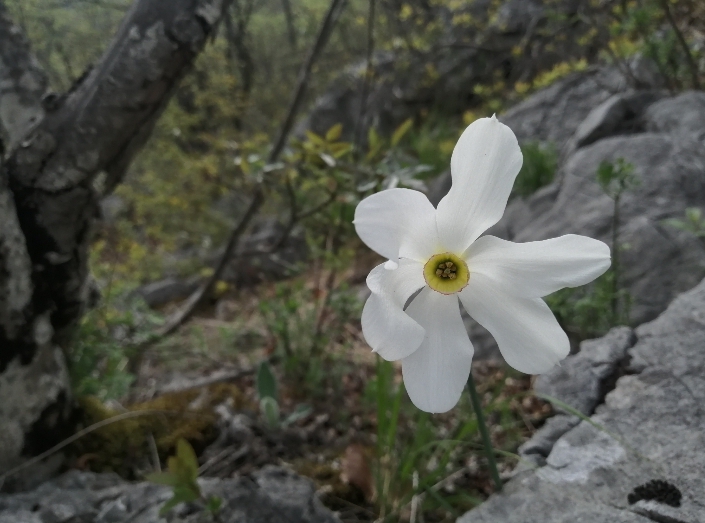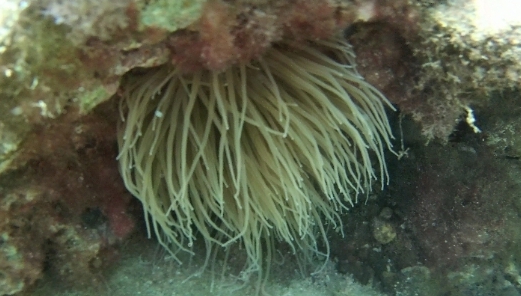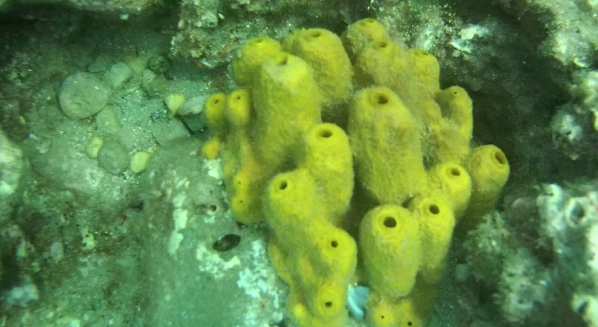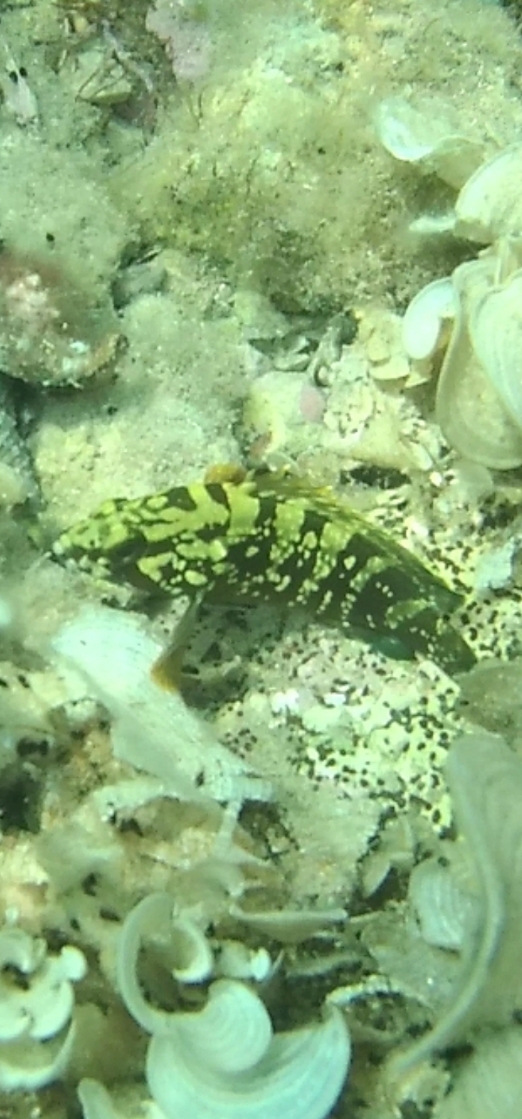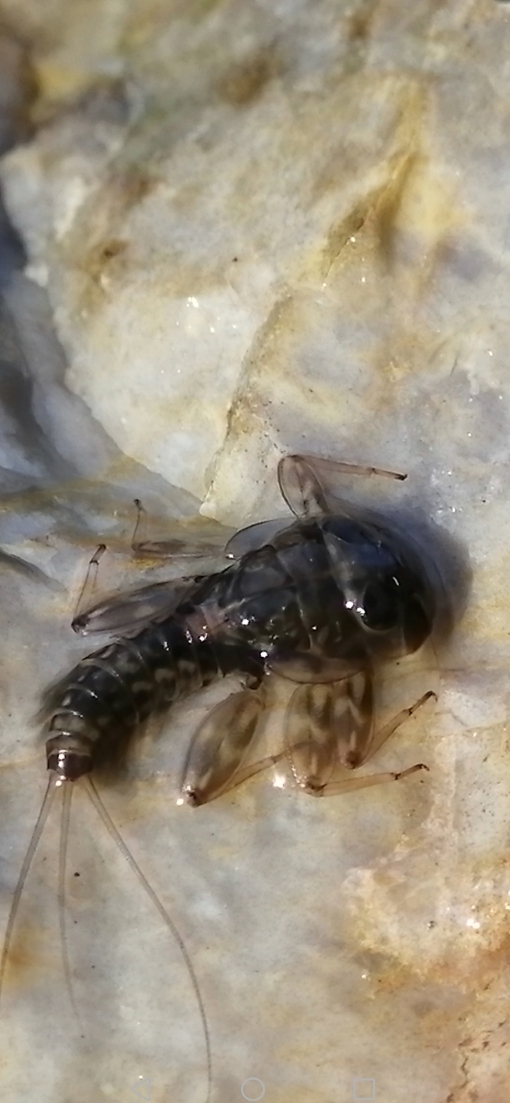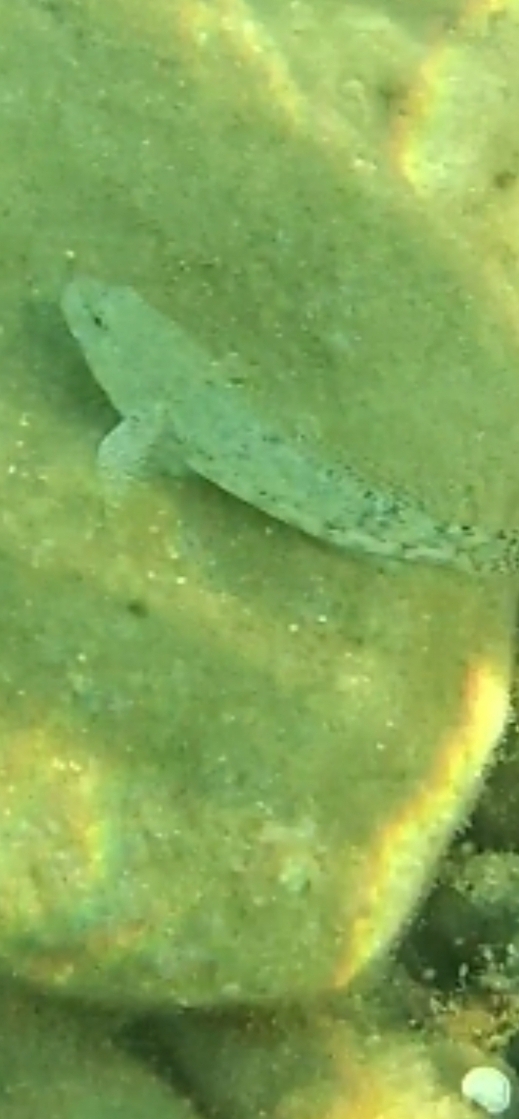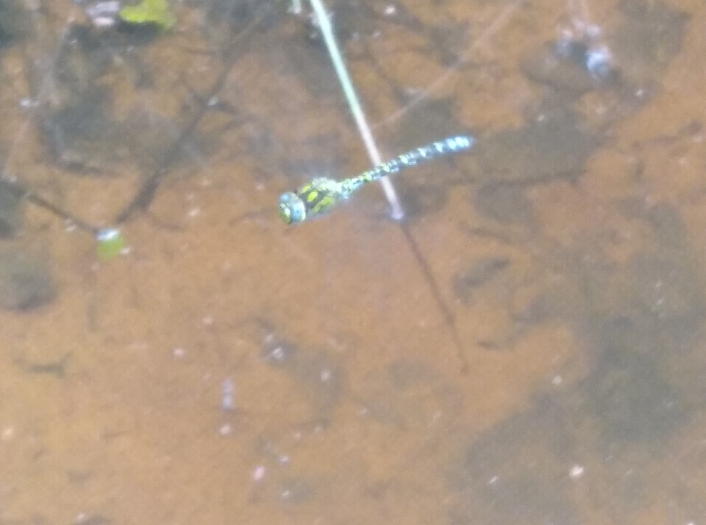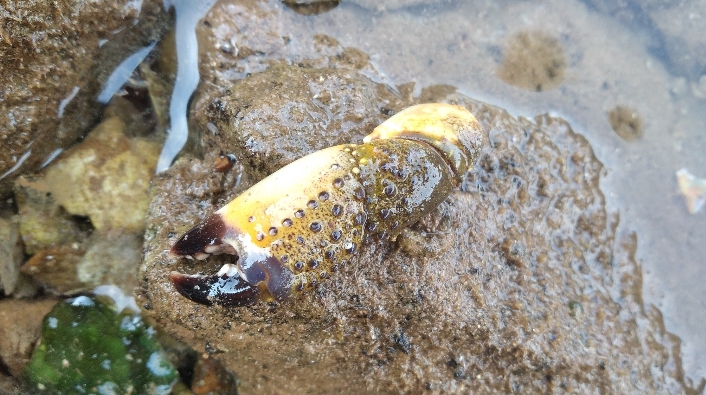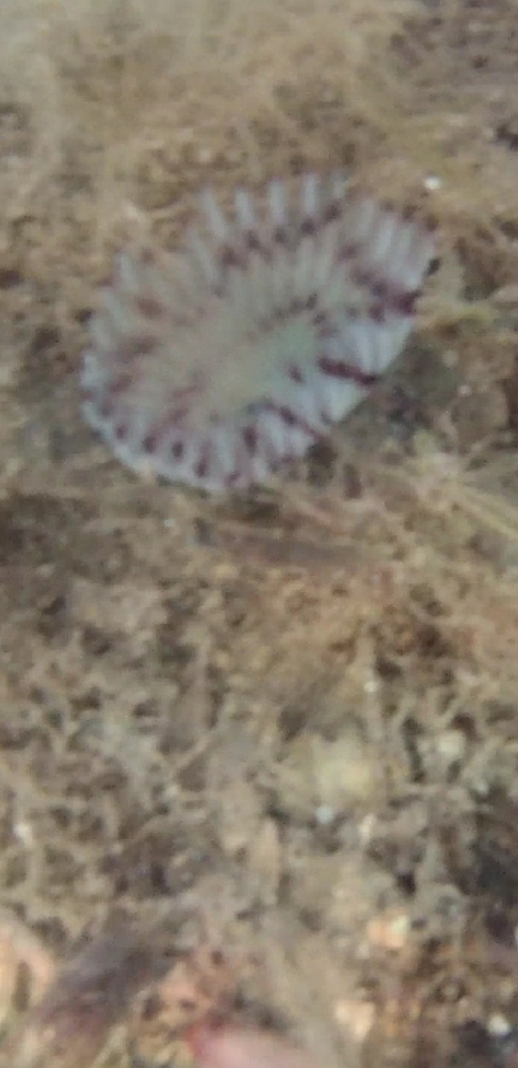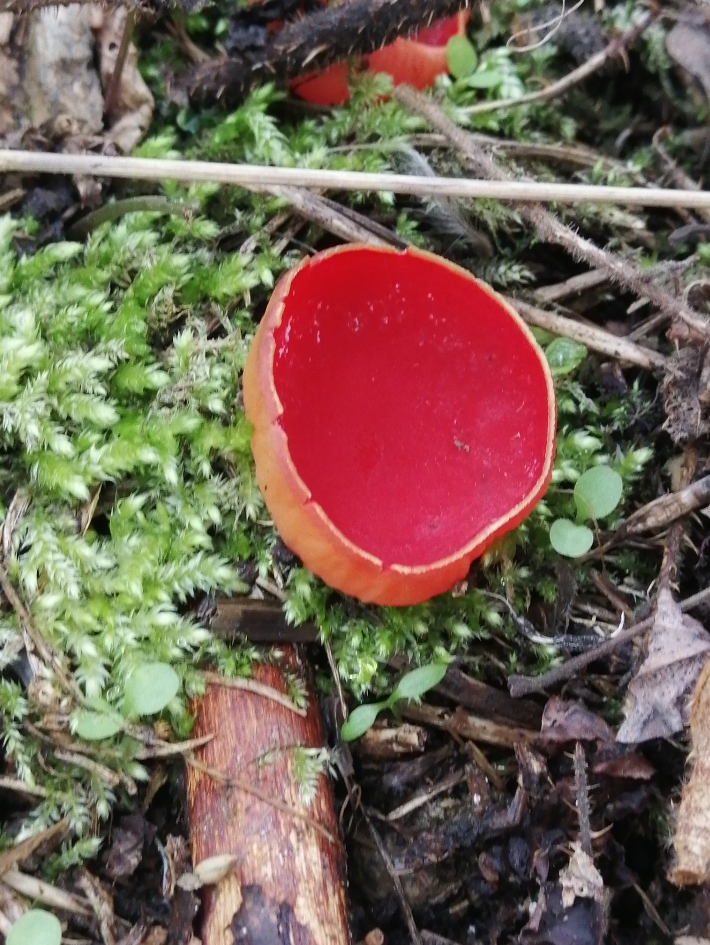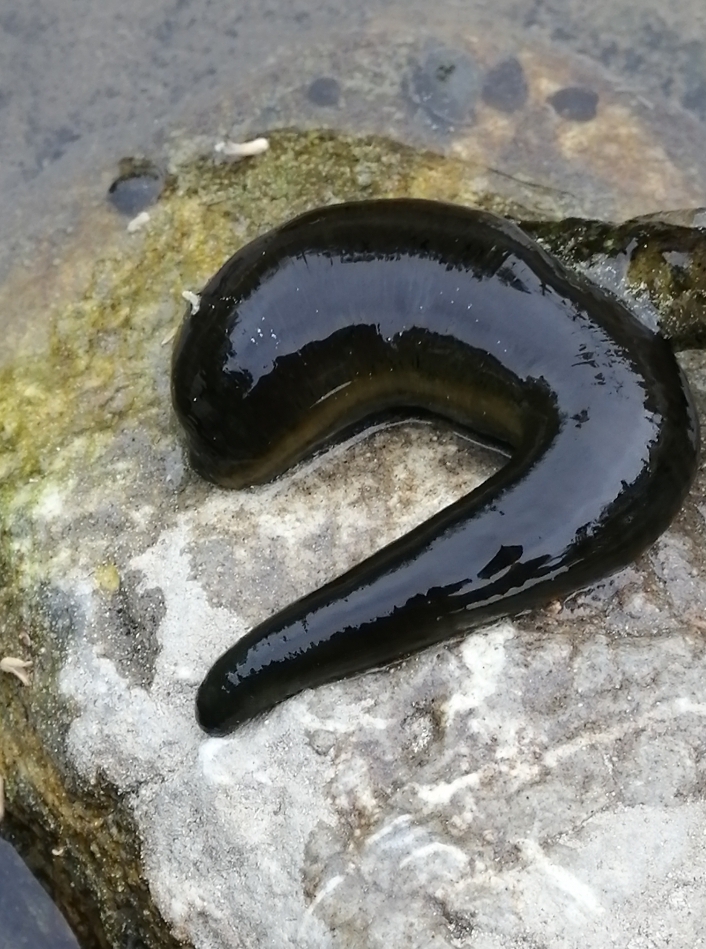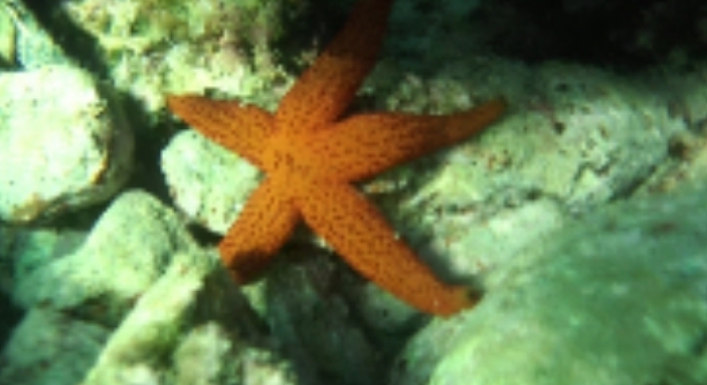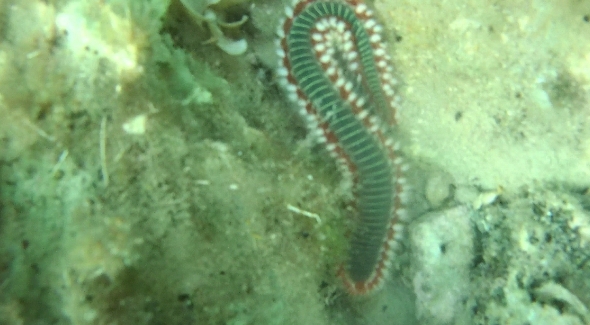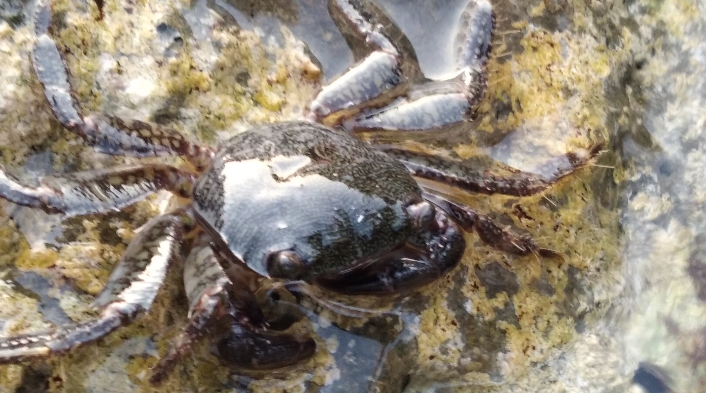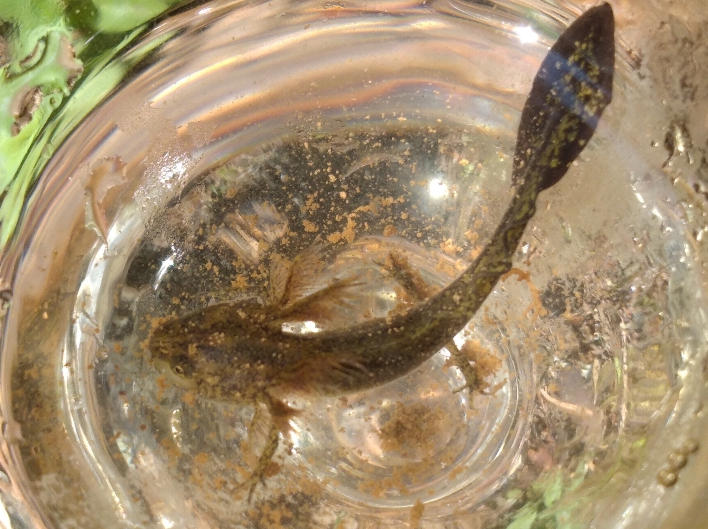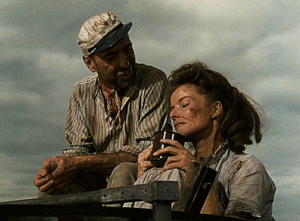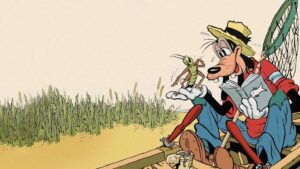Top 20 Species of 2020
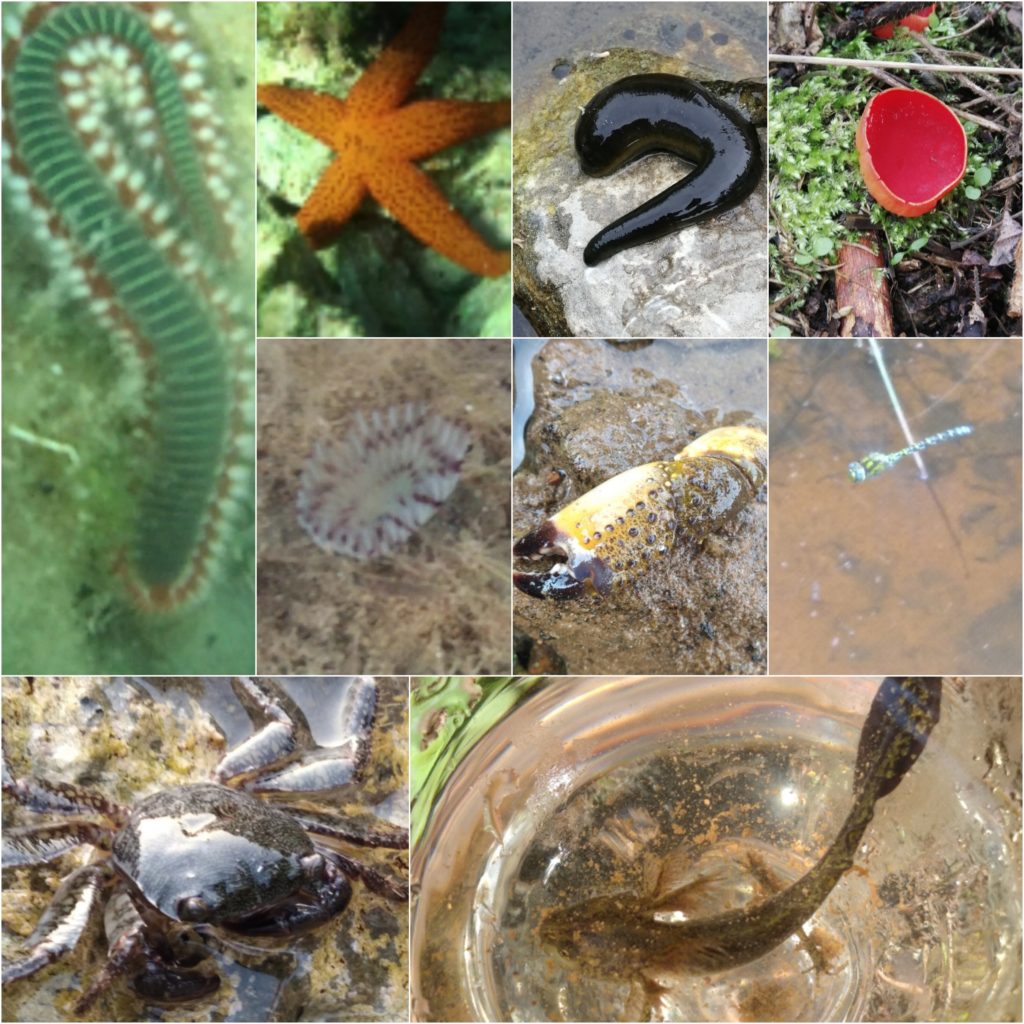
…………………………………………………….
Top 20 Species of 2020
This is the first year where I actually went on a summer vacation, which led to many snorkeling sessions where I observed a bunch of interesting marine animals inhabiting the Adriatic Sea. Half of this list will definitely regard the aforementioned species, but quite a lot of the other placements goes to freshwater specimens as I also got to explore the waters of my hometown quite often in 2020. The rest of the list includes some mushrooms and a couple of gorgeous flowers.
20. Alpine Squill – Scilla bifolia
This alpine plant belonging to the order Asparagales is one of the most stunning flowers that my eyes witnessed during this year, so it gets the last spot on my list deservedly so. Its six petals coupled with very bright, gorgeous blue color makes it an instant eye-catcher, but what makes it particularly cool is its rareness as it can only be seen at very high altitudes.
19. Song Thrush – Turdus philomelos
This song bird and its close relatives are quite abundant in my hometown’s mountain, but I did not actually see this one in adult form. I did not see it in any form really. What I did see was the egg of the species, which was abandoned on one slope, and it was by far one of the biggest discoveries of the spring of 2020 for me. With an astonishing blue color and memorable black spots, it’s just such an incredible egg to be seen.
18. Shaggy Mane – Coprinus comatus
One of the most memorable mushrooms that I’ve seen recently has to be the shaggy mane, a fungi species that is instantly intriguing in its look alone – the black round underside and an angular shape makes it resemble a princess dress. What is even more interesting is the scientific explanation behind this look – the bottom part turns dark and then pure black due to spores that disintegrate when their time comes. It’s all very interesting.
17. Violet Sea Urchin – Sphaerechinus granularis
There aren’t that many sea urchin species in Montenegro that I visited in September of this year with so many of the shallows being populated by the basic Arbacia lixula, so this is why this violet species makes for a rather memorable encounter when you happen to stumble upon it as it’s different than others and so gorgeous in its color and memorably globular in shape.
16. Acute Bladder Snail – Physa acuta
Having visited the sea this year, of course there will be a lot of the marine species populating this list, but there are also a couple of freshwater specimens that deserve a mention. This snail was particularly fascinating. There were quite a lot of them during one afternoon visit to the Drina river. The sinistral shell is beautiful while its highlight has to be the great mimicry of its shell color as well as the absolutely incredible, almost fluorescent spots on its body.
15. Poet’s Narcissus – Narcissus poeticus
It’s something special when stumbling upon a famous, gorgeous flower that you usually see in gardens or on pictures, so seeing it in its natural habitat is unforgettable. Narcissus could be seen only for a limited time on my home mountain and they were quite abundant on one of my hikes there. It is grandiose in size and its pistil is especially gorgeous.
14. Snakelocks Anemone – Anemonia viridis
I have witnessed a couple of anemone species during my snorkeling sessions back in September in Montenegro, but the most intriguing one is this particular species. It is usually embedded in rocks, but it’s difficult to miss due to the creature’s very long, numerous and bright tentacles that are beautiful to observe in their movements.
13. Gold Sponge – Aplysina aerophoba
Probably the most iconic of all the sponge species out there and the one that I personally think about when thinking about this animal phylum, the gold sponge is starkly yellow in color and also very memorable in its clustering appearance as there are usually a bunch of these organisms either living together or very close to each other on the seabed.
12. Dusky Grouper – Epinephelus marginatus
This fish is the most colorful that I have seen in the Adriatic Sea while snorkeling in the area of Herceg Novi. It is a strange creature in its appearance and head, but the yellow spots on its body make it undeniably easy to spot and differentiate from other fish species in its vicinity. It is one of the most usual fish sightings in the Adriatic.
11. Ecdyonurus Subalpinus – Ecdyonurus subalpinus
This is my first ever mayfly sighting and one of the most unusual creatures that I have laid my eyes upon so far. I have yet to see the adult version, but I saw the larvae more than a couple of times in the rivers of my hometown as it usually hides beneath the rocks. It looks very alien and intimidating with its many legs and absolutely huge otherworldly eyes.
10. Incognito Goby – Gobius cobitis
This goby easily gets the title of the most interesting fish species that I have encountered up until this point. Its colors are nothing special, but its spots, cute fins and face make it instantly recognizable and quite adorable even. The most interesting thing about it is its very slow swimming and the fish’s tendency to basically sit on rocks on the seabed. It’s quite lazy.
9. Southern Hawker – Aeshna cyanea
I have met this curious dragonfly many times during the summer months when I visited one very small pond on the mountain. Its green thorax and blue tail make it very colorful. It’s a grand, beautiful insect that is also incredibly inquisitive. It genuinely got interested in me at one occasion when it came very close to my face and observed my pointed finger with great curiosity. A very fascinating creature indeed.
8. Warty Crab – Eriphia verrucosa
I did see this huge crab hiding beneath rocks, but it moves so fast from rock to rock that it was quite impossible to photograph it. What I did photograph, however, was one pincer from the warty crab that I found and still kept to this day. It’s a powerful pincer and the crab looks rather intimidating, but is actually quite timid around humans.
7. Peacock Worm – Sabella pavonina
During my snorkeling sessions in the Adriatic, I have encountered a plethora of intriguing creatures, but none quite like this one. It is a fan worm that sits on a long tube with the protruding tentacles having a gorgeous blue-purple color palette. It is a very shy creature that continued to hide its tentacles whenever I approached it. It was such a fascinating, utterly unique creature previously unknown to me due to its odd shape that I genuinely had not known even its belonging phylum until I realized that it is definitely an annelid.
6. Scarlet Cup – Sarcoscypha coccinea
The greatest mushroom of 2020 for me proved to be this ascomycete fungi species. The scarlet cup has that signature cup shape that this group of organisms all possess, but what makes it more memorable than others is its much bigger size and a clear, stunning titular scarlet color. It usually grows in clusters and I have seen quite a few of them during its peak months.
5. Horse Leech – Haemopis sanguisuga
I know that to many people the leech is a disgusting creature, but I have never before seen one until stumbling upon the horse leech in the stream near Drina river one summer afternoon. I was instantly amazed by it. It’s a slow, but elegant swimmer, and it’s one of those species that hunt arthropods, but doesn’t suck blood, so it’s not a nuisance to humans. It’s such a huge, fat leech that it surely cannot be missed while its very dark black color on the posterior side is contrasted well with the strikingly yellow anterior.
4. Mediterranean Red Sea Star – Echinaster sepositus
There are only two starfish species to be found in the shallows of the Adriatic, or at least I personally found two during my stay there in September. The more beautiful one is of course the red sea star that is quite big, elegant and just stunning in its color that is actually orange instead of red. It is quite an abundant resident on the Mediterranean shallows.
3. Bearded Fireworm – Hermodice carunculata
Another one of the three annelid species on my list, the bearded fireworm belongs to the bristleworms and it’s truly a gorgeous creature with the red sides of the body being particularly striking. I managed to see a colony of this species only once and that was a memory that I definitely cherish. I do hope to see more similar species in the future.
2. Marbled Crab – Pachygrapsus marmoratus
The marbled crab isn’t the prettiest creature on this list, not by a mile. It’s not colorful nor is it unique in any shape or form. Then why did it get such a high spot? Well, because it is so cute being so small and witnessing it feeding was truly a sight to behold. I actually videotaped it grazing on algae and it was an adorable sight. The colony of these crabs lived just beside the place where I entered water on my beach, so it was surely cute seeing it again and again.
1. Smooth Newt – Lissotriton vulgaris
In a year where I did my marine research, it’s expected to have the marine animal get the number one spot. That did not happen, however, as this freshwater amphibian deserves it the most without any doubt. Yes, the smooth newt is truly a one of a kind amphibian that resembles a genuine dragon in its larval form with the crest on its face being enchanting. It’s both a cute and elegant sight to behold. But the biggest reason that it gets the first spot lies in my experience with it. The pond that I usually visit had plenty of them back in summer, but because they are such fast swimmers, I had to somehow trick one to capture it in a wine glass to photograph it. I was proud of myself when I managed to do just that, which led to one of my greatest animal photos so far.
Honorable Mentions:
Golden-Bloomed Longhorn – Agapanthia villosoviridescen – I love the longhorn beetles, so of course one is going to get an honorable mention. The golden color here is mesmerizing.
Indian Fig Opuntia – Opuntia ficus-indica – The prettiest cactus in Montenegro, this plant is particularly memorable for its prickled, sticky and very cool fruit.
Red Raspberry Slime Mold – Tubifera ferruginosa – This slime mold was strikingly colored being very orange and I stumbled upon it twice during this year.
European Yellow-Tailed Scorpion – Euscorpius flavicaudis – This scorpion inhabits the Tara mountain very high in the rugged terrain and I found a couple upon flipping some rocks over.
Daphne Blagayana – Daphne blagayana – This endemic species is very famous in my hometown and it’s a beautiful flower that represents the Tara mountain with pride.
Common Snowdrop – Galanthus nivalis – Marking the arrival of spring, the snowdrop is a stunning-looking flower that points the petals downward intriguingly so.
